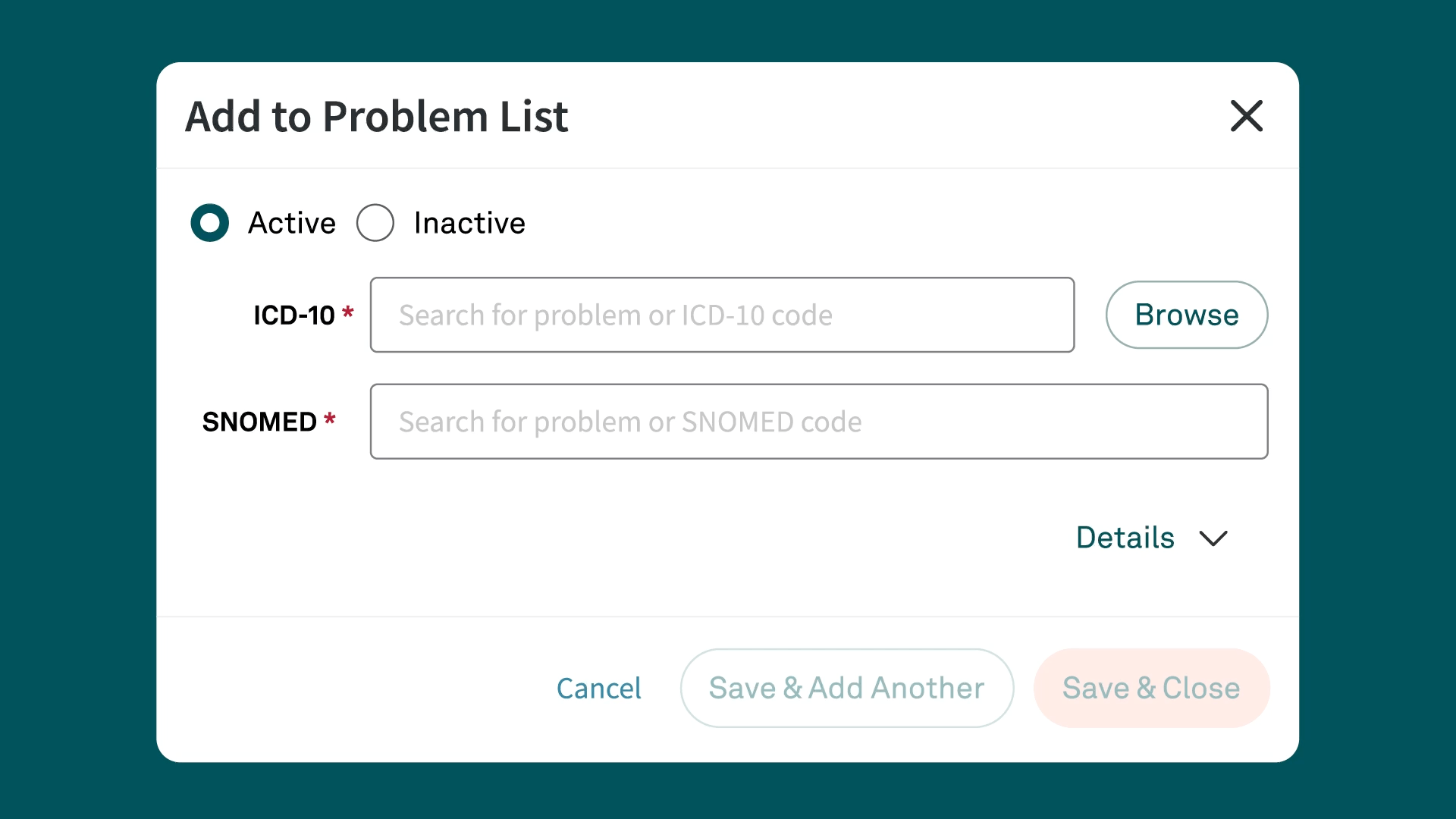ICD-10 Code R79.0
Abnormal level of blood mineral
What is the code R79.0?
ICD-10-CM code R79.0 refers to "abnormal level of blood mineral." Code R79.0 is an International Classification of Diseases, 10th revision, Clinical Modification (ICD-10-CM) code that healthcare providers and medical billers use to document and classify irregular levels of minerals in a patient’s blood. These minerals can include cobalt, copper, iron, magnesium, zinc, and others, which are important for numerous bodily functions. The code is part of the ICD-10-CM chapter 18, which covers symptoms, signs, and abnormal clinical and laboratory findings, not elsewhere classified.
Download your free resource now
Access it instantly — just complete the form

Detailed description of R79.0
R79.0 is a diagnostic code that captures a variety of abnormal blood mineral levels. This encompasses abnormal mineral levels found on laboratory testing without a related definitive diagnosis. These abnormalities can stem from various causes, including dietary deficiencies, chronic diseases, renal dysfunction, or endocrine disorders. Identifying and coding these abnormalities accurately is important for effective patient management and treatment planning.
Symptoms commonly associated with R79.0
Symptoms linked to abnormal blood mineral levels can vary widely based on which mineral is affected. Common symptoms may include:
- Hypercalcemia: Nausea, vomiting, constipation, abdominal pain, and confusion
- Hypocalcemia: Muscle cramps, tetany, seizures, and cardiac arrhythmias
- Hyperkalemia: Fatigue, weakness, numbness, and cardiac arrhythmias
- Hypokalemia: Muscle weakness, cramping, fatigue, and arrhythmias
- Hyponatremia: Headache, nausea, confusion, seizures, and coma
- Hypernatremia: Thirst, restlessness, irritability, and muscle twitching
These symptoms necessitate prompt clinical attention to prevent severe complications.
Related and similar ICD-10 codes
Several ICD-10 codes are related to or similar to R79.0. These include:
- E83.30: Disorders of phosphorus metabolism, unspecified
- E83.51: Hypocalcemia
- E87.1: Hypo-osmolality and hyponatremia
- E87.5: Hyperkalemia
- E83.52: Hypercalcemia
- E87.6: Hypokalemia
These codes offer more specific categorization for abnormal mineral levels and aid in precise documentation and billing.
Appropriate usage and guidelines for R79.0
Using R79.0 should be based on clinical and laboratory findings that confirm abnormal blood mineral levels. Physicians should ensure that the finding is well-documented in the patient's medical record, including the specific type of mineral imbalance and any relevant test results. This will support the accurate use of the code and facilitate appropriate treatment planning.
Common pitfalls in coding with R79.0
Several pitfalls can occur when coding with R79.0:
- Lack of specificity: Failing to specify the type of mineral abnormality can lead to incorrect or incomplete coding. When possible, use more specific ICD-10 codes related to the particular mineral imbalance.
- Inadequate documentation: Ensure all laboratory results and clinical findings are thoroughly documented to support the use of R79.0.
- Overlooking related conditions: Sometimes, abnormal blood mineral levels are secondary to other conditions. Ensure that these primary conditions are coded appropriately. If the primary condition causing the abnormal blood mineral level has been identified, assign the code for the underlying condition instead of R79.0.
Key resources for R79.0 coding
For further guidance on coding R79.0, consider the following resources:
- ICD-10-CM Official Guidelines for Coding and Reporting: These guidelines provide comprehensive instructions for using ICD-10 codes.
- Centers for Medicare & Medicaid Services (CMS): CMS offers resources and updates on coding practices, including webinars, manuals, and bulletins.
- Professional coding organizations: Organizations like the American Health Information Management Association (AHIMA) and the American Academy of Professional Coders (AAPC) offer educational resources, certifications, and support for medical coders.
- Coding reference books and software: Reference materials such as the ICD-10-CM codebook can support medical coders and providers.
These resources provide detailed instructions and updates on coding standards and practices.
Conclusion
ICD-10-CM code R79.0 is a code for documenting abnormal levels of blood minerals. Accurate coding of this condition is important for patient care, treatment planning, and proper billing. Understanding the symptoms, related codes, and appropriate usage can help avoid common pitfalls and ensure precise documentation. Using key resources can further enhance coding accuracy and compliance.
Simplify ICD-10 code documentation with Tebra
Tebra’s EHR+ gives you quick searches and Systematized Nomenclature of Medicine (SNOMED) field names for efficient code documentation. Plus, Tebra automatically saves ICD-10 to SNOMED mapping for future searches, streamlining your workflow.

Discover how Tebra helps providers effortlessly document health-related issues and conditions in this detailed post.
Similar Codes
Stay Ahead with Expert Healthcare & Billing Insights
Get the latest industry updates, financial tips, and expert strategies — delivered straight to your inbox.

